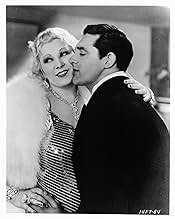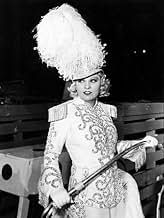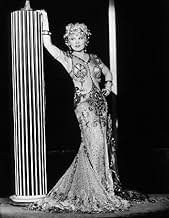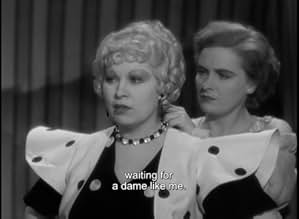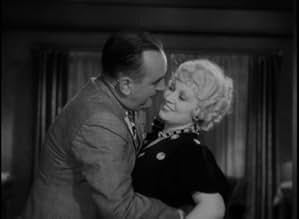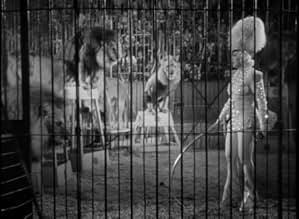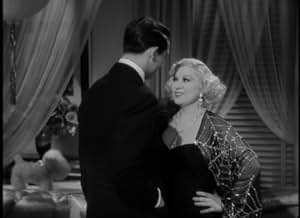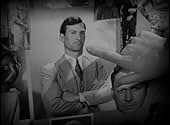Tira est danseuse dans un cirque mais comme ce qu'elle gagne ne lui suffit pas, elle reçoit des hommes dans une chambre louée. Son petit ami officiel, un pickpocket, s'en prend bientôt à l'u... Tout lireTira est danseuse dans un cirque mais comme ce qu'elle gagne ne lui suffit pas, elle reçoit des hommes dans une chambre louée. Son petit ami officiel, un pickpocket, s'en prend bientôt à l'un de ses visiteurs.Tira est danseuse dans un cirque mais comme ce qu'elle gagne ne lui suffit pas, elle reçoit des hommes dans une chambre louée. Son petit ami officiel, un pickpocket, s'en prend bientôt à l'un de ses visiteurs.
- Réalisation
- Scénario
- Casting principal
- Récompenses
- 2 victoires au total
- The Chump Ernest Brown
- (as Wm. B. Davidson)
- Man In Crowd
- (non crédité)
- Carnival Sideshow Spectator
- (non crédité)
- Omnes
- (non crédité)
- Bartons Chauffeur
- (non crédité)
- Sailor at Circus
- (non crédité)
- Sailor at Circus
- (non crédité)
Avis à la une
West was not possessing of the beauty of contemporaries such as Greta Garbo and Marlene Dietrich (neither of whom ever surpassed her in the polls). Her allure lies in the way she controls her body, a not-so-subtle hinting at what she is capable of in the bedroom, all done without showing so much as an ankle or flash of cleavage. She is perhaps the only female example of what many male stars from Clark Gable to George Clooney have been – an older player publicly seen as sexy thanks to a presence that transcends age. There have been other female stars who have this quality, but I believe West is the only one who thrived on it. As we see from her opening piece in I'm No Angel, she has absolute control over every aspect of her demeanour – a flick of the hips, a roll of the eyes, a set mouth. She could have been a decent straight actress had she turned her hand to drama.
But what is also remarkable about Mae West is that she had an unprecedented level of creative control over her work. Female writers were known but not common, and writer-actors of either gender were almost unheard of at the time. And I'm No Angel demonstrates West's wit and sophistication as much as it does her sexuality. And it's a rare tale for classic Hollywood in which the women are in charge. There's a sense of sisterhood, or at least mutual respect, between Mae and the other female characters. And as she says herself, walking off stage from her opening performance, the men who fall at her feet are just "suckers".
*I'm referring here to the ever-reliable Quigley Poll, which since 1932 has annually interviewed a large section of cinema-goers and asked them for their three favourite stars. Mae West came in at No. 8 in 1933, and No. 5 in 1934.
Tira fears to be betrayed by Slick and asks for a loan to Big Bill Barton (Edward Arnold) to leave the place. However, he offers her the money provided she accepts to put her head into the mouth of a lion. The show is a success and the circus move to New York, where the millionaire Kirk Lawrence (Kent Taylor), who is engaged but becomes her "protector", giving expensive gifts to Tira. But when she meets Kirk's partner Jack Clayton (Cary Grant), they fall in love with each other and decide to get married. But Big Bill does not want to lose his great attraction and plots a scheme with Slick to call off the engagement of Clayton and Tira.
"I'm No Angel" is one of the most important films of the controversial Mae West, the actress who saved Paramount Pictures from bankruptcy after the Great Depression. This actress was responsible for the censorship code in Hollywood and her malicious quotes are great. For example, "When I'm Good, I'm Very Good. But, When I'm Bad... I'm Better"; or the song "No One Does It Like a Dallas Man", that was forced to be changed "No One Loves Me Like a Dallas Man". My vote is seven.
Title (Brazil): "Santa Não Sou" ("Saint I am not")
The story centers around Tira (Mae West), a free-spirited woman working as a midway dancer in Big Bill Barton's (Edward Arnold) low class carnival. She is loved by Big Bill, but has a casual lovers, or in another sense of the word, acquaintances with the male population, one being "Slick" Wiley (Ralf Harolde), a pickpocket. Tira keeps a hotel room in town where she entertains gentlemen friends. One of her latest pickups is Ernest Brown (William B. Davidson), better known as "The Chump," five times married and with no morals. When Slick enters the scene to make a pinch, posing as Tira's husband, the angry Brown decides to leave and expose the two. Before he can get away, he is knocked unconscious by Slick. Mistaking him for dead, Tira and Slick make their getaway, leaving his body in the hallway. After Brown recovers, he discovers he's been robbed. Along with the police, Brown locates Slick at the sideshow and has him arrested. To clear herself, Tira hires Benny Pinkowitz (Gregory Ratoff), a prominent New York City attorney, to handle her pending trial. To obtain the loan, Tira agrees to appear as Bill's latest attraction, the star of a lion taming act, climaxed by putting her head into the mouth of the king of beasts. Because of her renewed success, with the act now playing at Madison Square Garden, Tira becomes the talk of the town. Entering the social scene following her encounter with Kirk Lawrence (Kent Taylor), who happens to be engaged to the jealous Alicia Hatton (Gertrude Michael), his relationship with Tira starts to ruin the family name. Jack Clayton (Cary Grant), Kirk's cousin, decides to pay Tira a visit and buy her off. Instead acquires this lovely product for himself. All goes well until Big Bill hires Slick, recently released from jail, to break up their relationship by posing as Tira's husband dressed in nothing but a bathrobe. Clayton calls off the wedding, leading to a breach of promise suit by Tira.
Songs credited by Gladys DuBois, Ben Ellison and Harvey Brooks, include: "They Call Me Sister Honky Tonk," "No One Loves Me Like That Dallas Man," "I Found a New Way to Go to Town," "I Want You, Need You," and "I'm No Angel" (all sung by Mae West). The title song, sung by West, is heard during the closing casting credits, and before the fade out, has the final say with, "I'm No Angel ... Believe ME!"
Following the success to SHE DONE HIM WRONG, I'M NO ANGEL, which re-teams West with Grant for the second and final time, proved to be an improvement over its predecessor, and to many Mae West fans, her best movie, and it's easy to see why. The courtroom scene where Tira (West) acts as her own attorney in the breach of promise suit, questioning the men in her past and present, and the male jurors who want to become part of her future, is priceless. With the members of the jury seen laughing out loud during Tira's defense sure had it's theater audiences doing the same thing back in 1933. During the course of West's longest movie, 86 minutes, I'M NO ANGEL is a full of memorable one-liners ("When I'm good, I'm very good. When I'm bad, I'm better," "Beulah, peal me a grape," "It's not the men in my life, but the life in my men," plus many more), and suggestive scenes leading only to the imagination of its viewers. I'M NO ANGEL is the movie where she introduced her most famous line, "Come up and see me some time," recited after her courtroom battle while on the telephone talking to the (unseen) Juror # 4. This line was spoken to Cary Grant, here, and in SHE DONE HIM WRONG, but each time in different ways. In spite of Grant's name billed second in the cast, his character appears very late into the story.
I'M NO ANGEL also consists of Mae West's personal traits. For instance, it's been written that West, born under the sign of Leo (month of August, a "hot" month) usually visited her astrologer for advice and never went through the day without reading her horoscope. Her character of Tira does just that, having her fortune told by the Rajah (Nigel De Brulier), who, while looking into the crystal ball, tells her he sees a man in her life. The surprised Tira responds, "Only ONE!" Later on in the story, one of her maids tells says she's a "one man woman." She quickly quips, "Yeah, one man at a time."
I'M NO ANGEL was thankfully produced before the production code went into effect, thus making this a "pre-code" comedy that has stood the test of time. It had become one of many Mae West/Paramount comedies of the 1930s to be distributed on video cassette in 1992. to commemorate West's centennial birth (1892). I'M NO ANGEL, along with SHE DONE HIM WRONG, became the movie package acquired by Turner Classic Movies, with I'M NO ANGEL having made its premiere on that station on January 6, 2001. For anybody who has never seen a Mae West comedy, especially her two prime comedies released 1933, I'M NO ANGEL should make a good introduction, and a suitable companion piece with SHE DONE HIM WRONG, both co-starring the only actor to appear opposite West on screen more than once. His name, of course, being Cary Grant. (**1/2)
Le saviez-vous
- AnecdotesIn 1935 and 1949, the production code was more rigorously enforced, and the film was not approved for re-release.
- GaffesDuring closeup when Tira sorts through a pile of phonograph records with different titles (That Dallas Man, That Frisco Man, etc.), all the labels have same serial number.
- Citations
Jack Clayton: You were wonderful tonight.
Tira: I'm always wonderful at night.
Jack Clayton: Yes, but tonight, you were especially good.
Tira: Well, when I'm good - I'm very good. But, when I'm bad - I'm better.
- Crédits fousBefore the Paramount logo appears on screen in the opening credits, a sign declares that the studio is an NRA (National Recovery Act) member with the text "We do our part" written beneath.
- ConnexionsFeatured in The Love Goddesses (1965)
- Bandes originalesThey Call Me Sister Honky-Tonk
(1933) (uncredited)
Music by Harvey Brooks
Lyrics by Gladys DuBois and Ben Ellison
Sung by Mae West
Meilleurs choix
- How long is I'm No Angel?Alimenté par Alexa
Détails
Box-office
- Budget
- 225 000 $US (estimé)
- Montant brut mondial
- 159 $US
- Durée
- 1h 27min(87 min)
- Couleur
- Rapport de forme
- 1.37 : 1

![Regarder Trailer [EN]](https://m.media-amazon.com/images/M/MV5BYzQ0NTY2NjUtOWNiNi00NDMzLWE0MzctOTc4NjM4ZjlhNTFkXkEyXkFqcGdeQXRyYW5zY29kZS13b3JrZmxvdw@@._V1_QL75_UX500_CR0)
